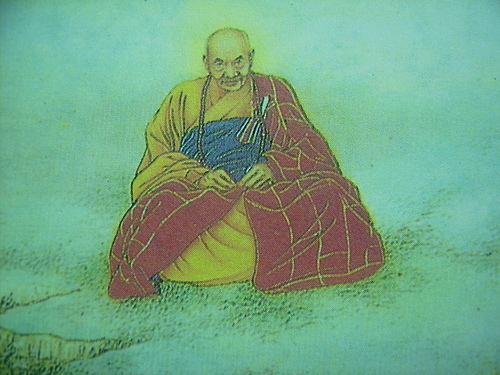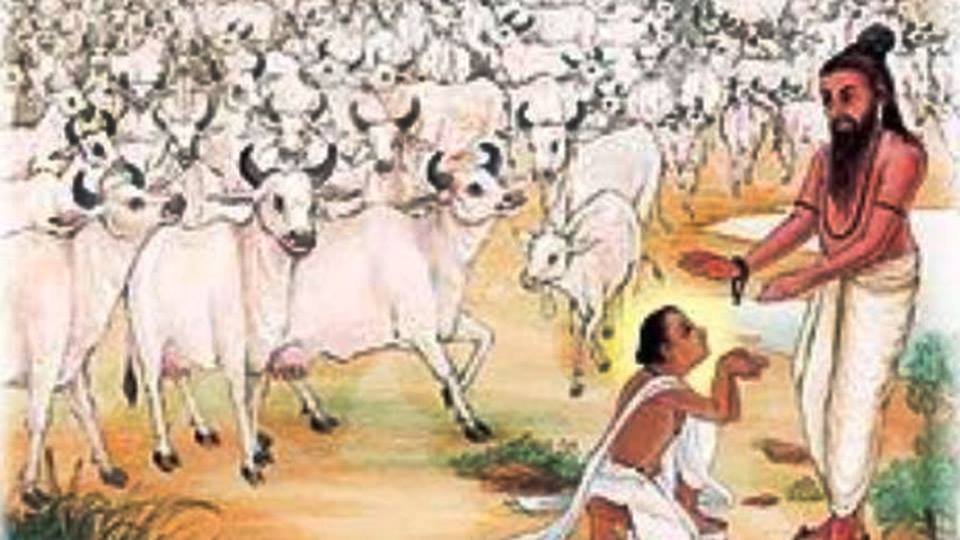Before we enter Yoga Sutra 21, let’s understand ‘What Is Participation’.
THE scientific mind used to think that there is a possibility of impersonal knowledge. In fact that used to be precisely the definition of the scientific attitude. By “impersonal knowledge” it is meant that the knower can remain just a spectator. His participation is not needed. Not only that, but if he participates in the known, the very participation makes the knowledge unscientific. The scientific knower should remain an observer, should remain detached, should not in any way get involved in what he knows. But this is no longer the case.
Science itself has come of age. Just these few decades, past three. four decades, and science has realized its fallacious attitude. There is no knowledge which is impersonal. The very nature of knowledge is personal. And there is no knowledge which is detached, because to know means to be attached. There is no possibility of knowing anything just like a spectator – participation is a must. So now the boundaries are no longer so clear.
The poet used to say that his way of knowing is personal. When a poet knows a flower he does not know it in the old scientific way. He is not an observer from the outside. In a certain deep sense he becomes it: he moves into the flower and allows the flower to move into him, and there is a deep meeting. In that meeting the nature of the flower is known.
Now science also says that when you observe a thing you participate – howsoever small the participation, but you participate. The poet used to say that when you look at a flower it is no longer the same flower as it was when nobody had looked at it, because you have entered it, become part of it. Your very look is part of it now; it was not that way before. A flower standing by the side of an unknown path in a forest, nobody passes by, is a different flower; then, suddenly comes somebody who looks at it – the flower is no longer the same. The flower changes the looker; the look changes the flower. A new quality has entered.
But this was okay for poets – nobody expects them to be very rational, scientific – but now even science says that this is happening in the labs: when you observe, the observed is no longer the same; the observer has participated in it and the quality changes. Now physicists say that atoms move in a different way when nobody is observing them. When you observe, they immediately change their movements. Just the same as when you are taking your bath: you are a different person; then suddenly you realize somebody is looking through the keyhole – you change. When the atom also feels that somebody has looked, it is no longer the same; it moves in a different way.
These were the boundaries: science was thought to be absolutely impersonal; it existed just in the middle of science and religion and was thought to be a partial participation; and religion was a total participation.
The poet looks at the flower – there are glimpses in which he is there no more, the flower is there no more. But these are only glimpses. For seconds there is a contact, and then they are again apart, then they fall apart. What happens when a mystic, a religious man, looks at the flower? The participation is total. It is not fragmentary. The knower and the known both dissolve; only energy vibrating between the two remains. Experience remains: the experiencer is no longer there, neither is the experienced. The polarities disappear, object and subject disappear, all boundaries are lost.
Religion is total participation. Poetry or art or painting is partial participation.
Science used to be no participation at all – this is no longer the case. Science has to come back to nearer poetry, nearer religion. The boundaries are all confused now. Just fifty years ago, any man trained in the ways of science would have laughed at Patanjali, would have laughed very loudly at Shankara and Vedanta, would have thought deep down that these people had gone mad. Now, it is impossible to laugh at Patanjali. He is proving truer.
As science grows deeper, yoga seems to prove truer, more valid, because this has always been the standpoint of the yogi: that only one exists. The separation, the division of boundaries, is provisional – it is because of ignorance. It is needed; it is an absolutely necessary training. One has to pass through it, one has to suffer it and experience it – but one has to pass through it. It is not a home; it is just a passage. This world is a passage of separation, of a divorce.
If you pass through it and you start understanding the whole experience, the marriage comes nearer and nearer and nearer, and one day, suddenly, you are married, married to the whole – all separation disappears. And in that marriage is bliss. In this separation there is suffering because the separation is false. It exists only because you don’t understand. It exists in your misunderstanding. It is like a dream.
You are asleep: then you dream a thousand and one things, and in the morning they all disappear. And suddenly you start laughing at yourself. The whole thing seems to be so ridiculous. You cannot believe that it happened. You cannot believe that you were deceived by it and that it was real. You cannot believe how it was possible that you got so enchanted by images floating in the mind, nothing but bubbles of thought, and how they looked – so solid, so substantial, so real.
The same happens when one comes to know the reality, but the reality is to be known through deep participation. If you don’t participate you will know the reality from the outside as a stranger, an outsider. You can come to this house; you can move around the house and you will know certain things about the house, but you have moved outside, on the periphery. You have looked at the walls from the outside – you don’t know the house from the inside.
Sometimes, like a thief in the dark of the night, you can enter the house also; the poet is a thief. The scientist remains a stranger. The religious man is a guest; he does not come in the dark of the night, does not steal in the house. Because one can know certain things as a thief also, the poet will be better than the man of science who has been wandering around and around and around, about and about and about, and never in. Even a poet will know something which a scientist can never know, because he has been in the house – though in the night, in the dark; though uninvited, not as a guest, not from the front door.
A religious man enters the house as a guest. He earns it. And he knows something not only about the house but about the host also – because he is a guest. He not only knows about the material house that exists, but also about the immaterial host that is there who is really the center of the house. He knows the owner.
Science knows only matter. Art sometimes has glimpses of the immaterial because a thief can also come across the owner, but he will be asleep. He can also see the face, but only in the dark because he is afraid, always afraid something may go wrong. He is a thief and is always afraid and trembling. But when you come to the house as a guest – invited, you have earned it – the host embraces you; there is welcome. Then you know the very center of reality.
In India we have two words, both mean “the poet.” In no other language are there two words for poet, because there is no need; one word is enough. It explains the phenomenon of poetry – “poet” is enough. But in Sanskrit we have two words, kavi and rishi, and the distinction is very subtle and is worth understanding. Kavi is one: he is a poet who has come as a thief. He participates, so he is a poet, but his knowledge is in fragments. In certain moments.. as if the thief was inside the house and there was sudden lightning in the sky and he could see the whole house from the inside also – but it is for a single moment.
The lightning is gone.. everything has become like a dream.
The poet comes across the reality sometimes, but as if he has not earned it. That’s why you will sometimes be surprised: you read a poem by somebody – X, Y, Z – it appeals to you, to your very heart, you are stirred and you would like to meet this man out of whom these lines have flown, but when you meet the man, the poet, you are disappointed – he is just plain, ordinary, nothing.
In the flight of his poetry he was so extraordinary, but if you meet the poet he is ordinary. What has happened? You cannot believe that such a beautiful gem can come out of such an ordinary man. It is because a poet is not a permanent resident of the temple. He is a thief. Sometimes he enters, but in the dark. Better than just roaming around and around; at least he has a glimpse. He sings about that glimpse – continuously there is a nostalgia in his being for the interior most glimpse that he has attained. He sings about it again and again, but it is no longer his experience now. It is somewhere in the past, a memory, a remembrance, not a reality.
The rishi is the poet who has been received as a guest. The word rishi means “a seer,” and the word kavi also means “a seer” – they both mean: one who has seen. Then what is the difference? The difference is that the rishi has earned it.
He entered the house in the full light of the day; he entered from the front door.
He was not an uninvited guest; he was not trespassing on anybody else’s property. He was welcomed. The host received him. Now he also sings, but his singing is totally different from ordinary poetry. The Upanishads are such a poetry, the Vedas are such a poetry – they are out of the hearts of rishis. They were not ordinary poets. They were extraordinary poets – extraordinary in the sense that they had earned the glimpse; it was not a stolen thing.
But this is possible only when you learn how to participate totally – that’s what yoga is. Yoga means meeting; yoga means marriage; yoga means union. Yoga means: how to come together again – how to dissolve the separation, how to dissolve all boundaries, how to come to a point where the knower and the known have become one. This is the search; of yoga.
Science, within these few decades, has become more and more aware that all knowledge is personal. Yoga says all knowledge is absolutely personal, and the more personal it is, the better – you should get involved in it: you should become the flower, you should become the rock, you should become the moon, you should become the sea, the sands. Wherever you look you should be both the subject and the object. You should get involved. You should participate; then only, life throbs, throbs with its own rhythm. Then you are not enforcing something on it.
Science is aggression, poetry is robbery, religion is participation.
Tags: Patanjali Religion Is Participation










